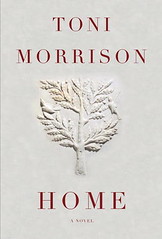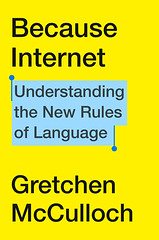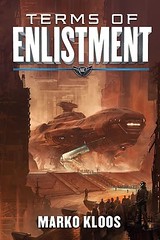Yeah, I’ve noticed it too … my book reviews keep getting shorter. Of late, when writing reviews, I feel the presence of an invisible interlocutor, putting me on the spot by demanding I justify my reactions and opinions. Naturally, I resist. I like what I like. I don’t like what I don’t like. If you like my blog, that probably means you share at least some of my tastes, and keeping that in mind I’ll continue sharing book reviews with you, because you might not have heard of the books I’ve been reading and would appreciate my recommendations. When my reviews distill down to the point where they’re just star ratings, maybe I’ll quit. —Paul
 The Grammarians
The Grammarians
by Cathleen Schine
![]()
A reviewer, a woman, has this to say about Cathleen Schine’s novel: “Women’s fiction. Mild family drama. Did not match blurb.” Which made me think of those one-liner Amazon DVD reviews they make fun of on Twitter, like the classic one star put-down of The Wolf of Wall Street: “There were no wolves in the movie.”
Women’s fiction? The thought didn’t cross my mind until I saw that review. Good fiction? Yes. Damn good fiction? Also yes. A book for word lovers? Absolutely … and I plead guilty.
I have to say my fellow Goodreads reviewer is not all wrong: “The Grammarians” is overly innocent. Real life intrudes on Cathleen Schine’s mild family drama, but not in the destructive, painful ways it intrudes on most of us. Everyone is good, or at least decent. No alcoholics, no affairs, no sudden reversals of fortune, no betrayals. If “The Grammarians” is ever made into a movie, it’ll air on the Hallmark Channel.
Nevertheless. I loved this novel and have recommended it to several dear friends. Dear friends who happen to be bibliophiles like me, true, but also some who could give a shit about words, but whom I believe would enjoy Cathleen Schine’s insights into siblings, families, and love.
 Home
Home
by Toni Morrison
![]()
My book club selected “Home” for our October 2019 read.
This short novel is so structurally unlike the previous Toni Morrison novel I’ve read, “Beloved,” that I wasn’t sure at first I was reading Toni Morrison. Which is unfair, making assumptions about an author after reading only one of her books.
There was more of the supernatural about “Beloved,” and a more complex narrative structure. “Home” tells a simpler story, in spare, direct narrative form. Like “Beloved,” it’s set in the deep South. Also like “Beloved,” “Home” has its own ghosts, though the supernatural element is gone.
One ghost is the full story of Frank Money’s past, which emerges over the course of the novel. Another ghost is the living black memory of not only Jim Crow, but the outright theft of southern black land and property, an unsettling aspect of American history suppressed to this day by the whole weight and might of the state.
If you think Ta-Nehisi Coates can get you fired up about the social justice of reparations, wait’ll Toni Morrison tells you about the black families who, one day … seemingly out of the blue, and at gunpoint … were given until sundown to abandon their homes and land in Alabama and make their way elsewhere however they might. Many of those families, the parents of the characters in “Home,” made their way to relatives in a neighboring state, there to start life over again with nothing but the clothes on their backs. Southern blacks, Frank Money reminds us, are treated “… like dogs. Change that. They treat dogs better.”
Frank Money is both better and worse than I hoped he’d be. In other words, a character in full. His sister Cee is perhaps less fully developed, but this is Frank’s story, not hers. “Home” is short to the point of being more a novella than a novel, but it bites as hard as “Beloved,” and I was moved.
 Because Internet: Understanding the New Rules of Language
Because Internet: Understanding the New Rules of Language
by Gretchen McCulloch
![]()
I joined AOL in 1990, built my first website in raw HTML in 1995, and started blogging in 2004; between that and my later embrace of Facebook, Twitter, Tumblr, and Instagram I feel comfortably up-to-date on internet writing conventions. I quit double-spacing between sentences long ago, and am on the record as a pioneer in the movement to lowercase “internet.” So a lot of what Gretchen McCullough has to say in this enjoyable book is old hat to me, but she says what she has to say in elegant and engaging prose, and I had fun reading it. She got me thinking about things I take for granted, like how I answer the phone.
You see, before she writes about how people answer calls on mobile devices, she backs up to the earliest days of landline telephones, when people were taught to say “hello” or “ahoy.” Ahoy (the salutation Alexander Graham Bell tried to popularize) didn’t catch on, but hello did, and people continue to answer by saying hello in the mobile phone age.
I’m sure it wasn’t just my family, but we were raised by parents who thought answering the phone with an anonymous hello was rude. We were taught to answer by saying “Woodford residence,” similar to the way receptionists answer with a cheery “Doctor Smith’s office,” or “Acme Plumbing.” It became an ingrained habit, and to this day I answer our landline with “Woodford Residence.” I’m glad mom and dad raised us kids right. The way most people mumble “hello” when they answer your call, it sounds like “duh” or “huh.” Might as well just grunt. But it’s better than “ahoy,” I guess.
A benefit of answering the phone with a crisp business-style salutation is that it’s an effective filtering tool in this age of spam and robo-calls. “Woodford residence” confuses telemarketers and automated recordings that key off “hello” and its variations.
[phone rings]
Woodford residence!
[silence]
[sound of me hanging up]
You might think from all this that technology hasn’t changed my telephone behavior, but you’d be wrong: I don’t say “Woodford residence” when I answer my iPhone. When someone calls that number, they’re not calling the house, they’re calling me. I answer by saying “This is Paul.”
Note: I wrote all that before I’d finished the book. McCullouch went on, to my pleasant surprise, to discuss cell phone etiquette. After addressing the debate over the rudeness of answering with “hello” or “hi,” she mentioned that many answer cell phones with their own name. I appear to be not so special, after all.
 Cold Storage
Cold Storage
by David Koepp
![]()
I’m midway through a multi-volume science fiction epic that’s become padded, repetitive, drawn-out, and less charming by the page, so when the library emailed to say it was my turn to pick up “Cold Storage” I took it as a welcome break and opened the book in that spirit.
“Cold Storage” proved to be more than a welcome break. It was a refreshing one: a compellingly thrilling bio-terror story with well-developed, engagingly odd characters, a breezy narrative structure, and excellent writing. I got through the first two-thirds in one night’s reading and finished on the following day. If it were not that the idea of a fast-growing deadly fungus intent on eating the world would alienate my wife, I’d be pushing the novel on her at this moment. Instead, I’m pushing it on you. Get it, read it, hope for more from David Koepp.
If you’re a fan of Carl Hiaasen’s early Florida novels, you’ll see echoes of Hiaasen in Koepp’s characters. I mean that as high compliment. I thoroughly enjoyed this novel, will look forward to more from the same author, and return to my increasingly-unsatisfactory science fiction epic with freshly girded loins.
 The Complete Stories of J.G. Ballard
The Complete Stories of J.G. Ballard
by J.G. Ballard
![]()
This has been a long-term episodic read. I’ve been eating this elephant of a book (1,216 hardbound pages!) for two years, nibbling away at it one story at a time.
Many of the stories collected here were published in sci-fi magazines of the 60s, 70s, and 80s, and I actually remembered one or two; others had not been published before. Almost all are SF, but there are one or two autobiographical reminiscences of the young Ballard’s experiences as a British civilian detainee in China during WWII, held in a Japanese POW camp (fully explored in Ballard’s autobiographical novel “Empire of the Sun”).
I recall reading that J.G. Ballard held a low opinion of some American SF authors, and being disappointed he felt that way. I remain disappointed in him after reading the stories in this collection, because IMO they are not nearly as good as those of the American SF writers I grew up reading. And they’re pretty much all the same to boot.
Most of these stories are narrated by solitary men inhabiting ruined worlds. There seems always to be a beautiful and mysterious woman nearby, usually appearing on the balcony of an abandoned beachfront hotel, and a raffish villain, often a former astronaut, competing with the solitary man for the woman’s attention.
Many of these stories were written in the early days of the space race, when the launch of an artificial satellite was front-page news; many more were written in the heady days that followed, when astronauts and cosmonauts began go up. In the stories, Ballard sets up scenarios where the mere act of going into space somehow alters human behavior and the orderly flow of time. Several of these stories are set in and around Cape Canaveral and Florida’s Space Coast, now abandoned and partially covered with sand dunes. Even in the later SF stories, written after men had stood on the moon, the same strange conceit is at play, that space travel has somehow changed everything down below.
Other stories (which also involve the impact of space travel on humanity) are set on the Spanish and French Riviera, and in those the three characters are British. Wherever the stories are set, the characters (with one exception in a rather good story about rebellious teenagers reoccupying an abandoned city and making its machinery work again) are unrelentingly white and upper middle class.
Sadly, even this limited cast of characters lacks depth and individuality. The loners are all the same. The women on their balconies are interchangeable. The raffish villains, sometimes astronauts, sometimes doctors, are all of a piece. Of the literally hundreds of stories in this volume, only a few stand out and feel to me like they were written by the J.G. Ballard I remember reading in my teens.
Give me Isaac Asimov and Theodore Sturgeon any day. Those guys could tell stories. J.G. Ballard, at least here, tells the same one over and over.
 The Extraordinary Life of Sam Hell
The Extraordinary Life of Sam Hell
by Robert Dugoni
![]()
I wish I had glanced at the reviews before starting this novel. Even though Sam Hill narrates a childhood with a staunch Catholic mother possessed of unwavering faith, a childhood spent attending Catholic grade and high schools, he tells the reader early on he lost his faith sometime in his teenage years and continues to reassure us he no longer believes … right up until the final chapters.
I was lulled into accepting Sam Hill as a plausible character dealing with a few interesting issues in life. Had I realized up front the novel is basically Catholic propaganda I would not have read it. As it was, I kept ignoring the hints dropped on nearly every page until the end, when Sam, accompanied by his father and mother, makes a pilgrimage to Lourdes and experiences epiphanies and miracles. Goodness gracious, where did that come from! Goodness gracious, Robert Dugoni lays it on thick, don’t he?
What kept me reading was a simple and direct narrative of a life so unlike my own I may as well have been reading about someone from another dimension, one where people live out their lives in the town where they were born, lo even unto the same house, lo even unto going to college in the community and staying put as adults, lo even unto staying in the same house … and miraculously so do most of the important characters in Sam Hill’s life. What a concept! And one, as a military brat who became a military man with his own military brats, I find wholly exotic, almost unbelievable.
As a side note, I may be one of the few readers who knew of Orbis, a flying eye hospital, before picking up this novel. One of the former Orbis DC-10 aircraft is on display at the air museum where I work as a volunteer docent. I was delighted to see this worthy charity depicted in fiction, and thank Robert Dugoni for helping spread the word about it.
Yes, the novel has charms, and if you are a religious person, specifically a Catholic one, you will be rewarded and uplifted (in a cheap and manipulative way). Me, I felt ambushed. I should have known better. It’s not like Robert Dugoni didn’t telegraph Sam Hill’s return to Catholicism a mile away.
 Frontlines Series
Frontlines Series
by Marko Kloos
![]()
This is a six-book science fiction series: “Terms of Enlistment,” “Lines of Departure,” “Angles of Attack,” “Chains of Command,” “Fields of Fire,” and “Points of Impact.” After reading the first, I decided to read the entire series and write a combined review upon finishing it. I thought I had discovered another phenomenon of the self-published science fiction world, a writer like Hugh Howey (author of the “Silo,” “Sand,” and “Wool” series, and I set into this project with enthusiasm.
That initial enthusiasm started to fade with the third novel in the series, which was overly repetitive, as if written for an audience unfamiliar with what had gone before. Surely, I thought, readers of Kloos’ third “Frontlines” installment would have read the first and second books? By the fourth book, I had become annoyed with Kloos’ habit of padding his narrative with long drawn-out descriptions of space battleships and cruisers, military chains of command, and the domestic arrangements of Andrew Grayson and his lover Halley, all of which had been thoroughly developed and described in previous books.
I think it was in the second book, “Lines of Departure,” that Kloos dropped an interesting observation about the Lankies, the alien threat to humanity, its colonies, and our own Solar System: when the first Lanky seed ship was destroyed in orbit, Lankies ravaging the human colony on the planet below became disoriented and disorganized. I took that to mean there was some sort of living connection between the Lankies and their seed ships, which appear to be composed of organic matter, and confidently waited for Kloos to develop this intriguing plot line in later books. And he never did. In fact, Lankies in later installments become smarter and smarter, regardless of the status of their seed ships in orbit.
In fact, now that I have finished all six books, I have to say that no intriguing plot lines ever do develop. They’re just war stories set in space, and especially in the later books, even the space battles don’t happen until quite late in the books. You have to wade through chapters and chapters of stuff you’ve already read to get to the good parts, which occupy less and less of every succeeding installment.
Overall, the experience has been a disappointment, and I have decided to give up on another initially-promising Marko Kloos series, “The Palladium Wars,” the first of which, “Aftershocks,” I likewise enjoyed but which I fear will go the same way as the “Frontlines” series, a collection of what should have been short stories puffed up with air in order to make them look like novels.
 Night Film
Night Film
by Marisha Pessl
![]()
Did not finish, no rating.
This was my book club’s selection for November 2019. The category was horror. I gave up on it after a few decidedly non-horrifying chapters. Moreover, I didn’t like the narrator and his assholish way of interrogating witnesses. Life’s too short to drink bad beer, as they say.
Here’s a bit of advice for anyone tempted to buy the e-book version: “Night Film” is half traditional novel, half graphic novel, and you may not be able to read the graphics on a Kindle or other e-reader. Page after page is filled with tiny images of fictional newspaper columns, police blotter writeups, etc, which can’t be enlarged on an e-reader. My workaround was to download the Kindle app to my iPad, which did allow me to enlarge them. I wish I had known this earlier … I’d have ordered the actual book.